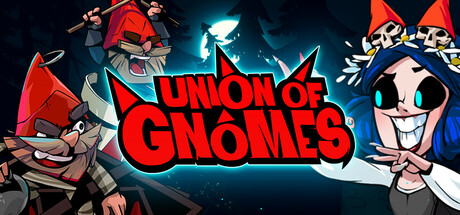An Interesting Case of Duality, And Luck Astrea: Six-Sided Oracles, at first glance, may seem like another attempt to follow the footstep of Slay The Spire, the titan of roguelike deck-builder. Mostly, yes, but it also adds interesting mechanics to the formula. The theme of the game is duality - Corruption and Purification. Many of the mechanics revolve around the balance of the two. Having too much corruption will ruin you. With no corruption you cannot use any of your abilities. This simple idea not only sets the tone of the game right but also creates some interesting dynamic in dice-building. Things I Like About Astrea: Six-Sided Oracles: 1. Gameplay It may be the token deck-building, turn-based combat, but the balance of Corruption and Purification keeps things fresh and tight. [*]The "deck" is actually made of dices. Every time you draw a dice, the game will roll that dice to determine which side of it you get. [*]Dices are divided into three tiers: Safe, Balanced, and Risky. Dices become more powerful the higher the tier, but more sides of the same dice will become corrupted. [*]Each character has a Virtue system. It serves both as your secondary health pool and the ability bar. Receiving seven corruption will automatically lose a heart. Players can choose to replenish their health by playing purification dice on themselves. [*]Alternatively, players can also choose to keep a certain amount of corruption. The abilities are linked to the corruption. They are only available when players reach a specific level of corruption. If the players can maintain that level, then the corresponding abilities will remain available in the next turn. [*]Thus, the dynamic creates an interesting interaction. It's a constant battle between risk and reward. Keeping enough corruption to have the abilities to alter the dice to your advantage, or remaining pure to survive another onslaught of corruption. [*]Buff and debuff work both ways. Buff that benefits you will harm the enemies if you choose to put on them, vice versa. For example, Light Shields can block corruption for you. You can also use them on the enemies to block the corruption build-up. In doing the latter, you prevent the enemies from over-corrupting and effectively from using their dangerous abilities. [*]Adhering to the theme, the artifact also the same risk-and-reward philosophy. Star Blessings offers minor benefits, while the Black Hole Blessings provides a significant buff for you and your enemies. 2. Characters Every character has two main play style and some minor alternatives. [*]Moonie is the starting character and the most efficient one. She can convert any corruption into purification, easily turning the most harmful dice into a weapon of her own; or she can enhance some weaker dices to deal significantly more damage. Her dices focus on providing more benefits when either conversion or enhancement happen. [*]Cellarius is the berserker in the bunch. His kits lean more toward deliberately getting corrupted to use his abilities. Going back and forth the edge of over-corruption can help him use his virtue more often. The shark is also great at aoe purification through Wave counter. He can apply multiple Waves to a single enemies and deal a burst amount of aoe purification when the counter matches enemies' corruption values. [*]Hevelius is the engineer. He specializes in the Sentinels, able to have two of them at the start. While most of his dices focus on granting him shields and his sentinels more offensive attributes, this mechanical rhino can also put bombs in his sentinels and break them, deliberately triggering aoe purification. [*]Austra is probably the most luck-based of the crew. All of her kits is about dealing with randomness. Her offensive option majorly involves stacking as much critical chance as possible and pray to the RNGesus that the random attack will land on the enemies, while her defensive option is stacking as much dodge as possible and pray to the RNGesus that the enemies' attack will miss. Luckily, her dices can alleviate some frustration from randomness. [*]Sothis has a special counter named Soul Heart, which can trigger specific dice of great value. To gain Souls heart, he can focus on applying the status effect Relief which triggers purification to the host at the end of turn, or he can build his dices around re-using the same dice as much as he can. [*]Orion rotates his ring of orbs to gain various benefits and some minor hiccups. He can choose to rely on one or two orbs to maximize their respective buff, or he can rotate the ring multiple times and deal equal amount of purification. 3. Other Compliment [*]I love the strong color contrast between Purification and Corruption. Thing I Dislike About Astrea: Six-Sided Oracles: Strict Level Structure VS Higher Difficulty This may not be obvious at the start, but at higher difficulty it become increasingly more problematic. [*]In contrast to Slay The Spire, the level is significantly shorter in Astrea: Six-Sided Oracles. Every area comprise two to three battle encounters with one or two dice/shop nodes in between. [*]This level structure keeps players' progression in check and the strength of the dices tight. This also means, unfortunately, less opportunity for players to tweak the dices. [*]At default difficulty this problem may not be obvious, but at higher Astrea and Anomaly level it becomes much difficult to control your dices. [*]Enemies receive higher maximum corruption and ramps up the attack faster, to the point that starter dices can hardly keep up. As a result players cannot afford to pass on the opportunity to add any dice, even though the dice in question may not be benefit your play style. [*]You risk dragging the battle too long if you don't take the less desirable dices; your build become less reliable if you take too much unrelated dices. 中文小簡評 →類似殺戮尖塔的骰子回合制roguelike。 →很喜歡遊戲美術鮮藍色與暗紅色的強烈對比。 →玩法大同小異,卡片改成擲骰子來決定效果,骰子會因為危險程度而有不同面向,越危險給的能力越強,但會有更多面向遭腐化。 →角色淨化值是你的血量也是技能條,技能需要透過相對應數量的腐化來觸發, →玩家必須在淨化與腐化間取得平衡,任一邊失衡都可能會影響戰局;太多淨化角色技能無法正常發揮,太多腐化很容易一個不小心把自己玩死。 →這就讓每場戰鬥特別有趣,觀察敵人,看是要留一定的腐化值讓技能下一回合也能重新觸發,還是將其清空好承受下一波攻勢。 →由於遊戲一體兩面的主旨,增減益有雙向的效果,增益能強化自己也能阻礙敵人,反之亦然。 →每個角色都有兩種不同的玩法,能透過專屬骰子擇一增強。 →遊戲關卡比起殺戮尖塔更短更精簡,玩家升級的幅度有限。 →這在初始難度或許沒啥問題,然而高難度下玩家對骰子組的可控性越來越低。 →高難度敵人腐化值特別高,攻擊增幅速度快到初始骰子很難與之抗衡。因此玩家無法挑三揀四,運氣不好就得拿一些與角色玩法無關的骰子來應付。 →這個情況很容易演變成骰子數量過多無法有效利用角色特性、不拿骰子又很容易被敵人三兩下打回家。
Expand the review


























